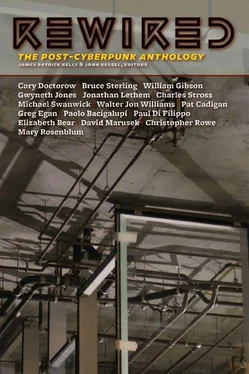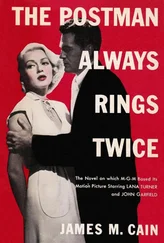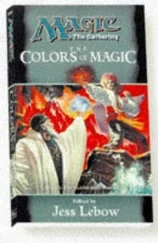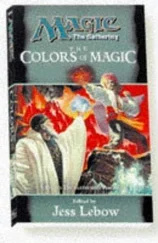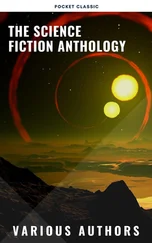Rewired:
The Post-Cyberpunk Anthology
Introduction © 2007 by James Patrick Kelly and John Kessel | Sterling-Kessel Correspondence © 2007 by John Kessel and Bruce Sterling | William Gibson quotation © 1999 from No Maps for These Territories . Used by permission of the author. | “Bicycle Repairman” © 1996 by Bruce Sterling. First appeared in Intersections , edited by John Kessel, Mark L. Van Name, and Richard Butner (Tor: New York). | “Red Sonja and Lessingham in Dreamland” © 1996 by Gwyneth Jones. First appeared in Off Limits , edited by Ellen Datlow (St. Martin’s: New York). | “How We Got in Town and out Again” © 1996 by Jonathan Lethem. First appeared in Asimov’s Science Fiction , September 1996. | “Yeyuka” © 1997 by Greg Egan. First appeared in Meanjin , V56, #1, 1997. | “The Final Remake of The Return of Little Latin Larry with a Completely Remastered Soundtrack and the Original Audience” © 1997 by Pat Cadigan. First appeared in Future Histories , edited by Stephen McClelland (Horizon House: Norwood, Massachusetts). “Thirteen Views of a Cardboard City” © 1997 by William Gibson. First appeared in New Worlds , edited by David Garnett and Michael Moorcock (White Wolf: Stone Mountain, Georgia). | “The Wedding Album” © 1999 by David Marusek. First appeared in Asimov’s Science Fiction , June 1999. | “Daddy’s World” © 1999 by Walter Jon Williams. First appeared in Not of Woman Born (Roc: New York). | “The Dog Said Bow-Wow” © 2001 by Michael Swanwick. First appeared in Asimov’s Science Fiction , October/November 2001. “Lobsters” ©2001 by Charles Stross. First appeared in Asimov’s Science Fiction , June 2001. | “What’s Up, Tiger Lily?” © 2003 by Paul Di Filippo. First appeared in The Silver Gryphon , edited by Gary Turner and Marty Halpern (Golden Gryphon: Urbana, Illinois). | “The Voluntary State” © 2004 by Christopher Rowe. First appeared in sei fiction , May 5, 2004. | “Two Dreams on Trains” © 2005 by Elizabeth Bear. First appeared in Strange Horizons , January 3, 2005. | “The Calorie Man” © 2005 by Paolo Bacigalupi. First appeared in The Magazine of Fantasy & Science Fiction , October/November 2005. | “Search Engine” ©2006 by Mary Rosenblum. First appeared in Analog , September 2005. | “When Sysadmins Ruled the Earth” © 2006 by Cory Doctorow. First appeared in Jim Baen’s Universe , August 2006.|
We’d like to thank the following people for advice, suggestions, and recommendations: Wilton Barnhardt, Richard Butner, Matthew Cheney, Gregory Frost, Eileen Gunn, Rich Horton, Kelly Link, and David Moles.
Our thanks are also due to Jacob Weisman, Jill Roberts, and the other folks at Tachyon Publications who helped see this project through to completion.
None of these estimable people are responsible for errors of judgment or taste we committed in assembling this anthology.
James Patrick Kelly and John Kessel
Hacking Cyberpunk
“However, I don’t worry much about the future of razor’s edge techno-punk. It will be bowdlerized and parodized and reduced to a formula, just as all other SF innovations have been. It scarcely matters much, because as a ‘movement,’ ‘Punk SF’ is a joke. Gibson’s a litterateur who happens to have an unrivalled grasp of the modern pop aesthetic. Shiner writes mainstream and mysteries. Rucker’s crazy; Shirley’s a surrealist; Pat Cadigan’s a technophobe. By ‘95 we’ll all have something else cooking.”
— Bruce Sterling, in a letter to John Kessel, 29 March 1985
shades
The Hugo Award-winning editor David Hartwell tells the story of how Bruce Sterling approached him in 1983 with a proposal for an anthology of short stories which would eventually become the classic Mirrorshades . The book was to be a kind of literary manifesto for the newly emerging cyberpunk movement. David said he was indeed interested and asked how many writers Bruce expected would be in Mirrorshades . Bruce said he had five or six in mind. David replied that five or six was not enough for a movement and that Bruce would need at least a dozen. So Bruce set out to recruit writers for the movement and his anthology, even if they were not card-carrying cyberpunks. Among those he found was one of the editors of this book, who was at the time most closely associated with the humanist camp, said to be in opposition to cyberpunk.
It is not surprising that the cyberpunk movement, so quick to sneer at other kinds of science fiction and to strike an attitude of hip self-importance, would be controversial. To its critics, cyberpunk was all borrowed surface and no substance: rock and roll Alfred Bester, Raymond Chandler with the serial numbers filed off. To the cynical, it was nothing but a marketing ploy to advance the careers of those select few who were permitted to hang their leathers in the secret Node Zero clubhouse. But as they continued to publish their innovative stories and novels, readers and — eventually — writers and critics began to acknowledge that there might be something to cyberpunk. In 1986, the pseudonymous Vincent Omniaveritas, writing in the cyberpunks’ snarky house organ, Cheap Truth , brought the classic cyberpunk era to an end. “I hereby declare the revolution over,” crowed Vince. “Long live the provisional government.”
And then the real arguing started.
moving on
In the quarter century since, the debate has continued over the place of cyberpunk not only in science fiction, but in the culture as a whole. The literary discussion was complicated when some of the original cyberpunks tried to distance themselves from the movement. Naysayers seized on this to declare that cyberpunk was actually a movement of just one and his name was William Gibson. It soon became apparent that the center could not hold. However, the movement did not implode. Rather, popular culture hacked into it and turned cyberpunk to its own purposes. We saw cyberpunk music, movies, comics, and videogames. The slick magazine Wired became the Popular Science of cyberpunk. The cyberpunks had made computers and programming sexy; digital geekdom returned the favor by trying to reverse-engineer their ideas in silicon and code. But as it became more familiar, it also became tamer. Or maybe it grew up. There were cyberpunk ad agencies, cyberpunk fashion designers. Timothy Leary declared that the movie War Games was cyberpunk. The more people appropriated cyberpunk to their own uses, the fuzzier it became.
Our genre has been largely nonplussed by the spread of the cyberpunk meme. Learned papers have been given to explain the phenomenon. Some complain that science fiction has more to offer than dark visions of disaffected loners contending with totalitarian corporations. “The street,” so central to the classic cyberpunk vision, is not the world, they say. And they are right, of course. Meanwhile, as second and third generation writers have put on their mirrorshades, they are all too often dismissed as mere imitators. Some in our genre have decided that they know what cyberpunk had to say, and, whether they agree with it or not, have consigned it to the dustbin of literary history. Cyberpunk can no longer be an ideology, they would say. It can only be a flavor.
rewired
In retrospect, it seems clear to us that cyberpunk was a movement. We acknowledge all the criticisms leveled against it. The hyperbole that helped launch it was unfortunate. Yes, some core cyberpunks found other things to write about or fell silent. Of course, the term’s use in common parlance is now so vague as to verge on meaningless, but our dictionary offers two definitions of movement that fit: “a. A series of actions and events taking place over a period of time and working to foster a principle or policy. b. An organized effort by supporters of a common goal.” In the heyday of Mirrorshades and Cheap Truth , the latter definition of classic cyberpunk — CP — made sense. There was a Movement with a capital M. We believe that the sixteen postcyberpunk [1] The term “postcyberpunk” was first used by writer Lawrence Person, in an essay titled “Notes Toward a Postcyberpunk Manifesto” published in the critical magazine Nova Express in 1998. Person’s essay points toward some of the same developments we are pursuing in this anthology, but we do not use the term in exactly the same way that he sets it forth. As we go to press, Person’s essay is still available at the URL http://slashdot.org/features/99/10/08/2123255.shtml.
Читать дальше
